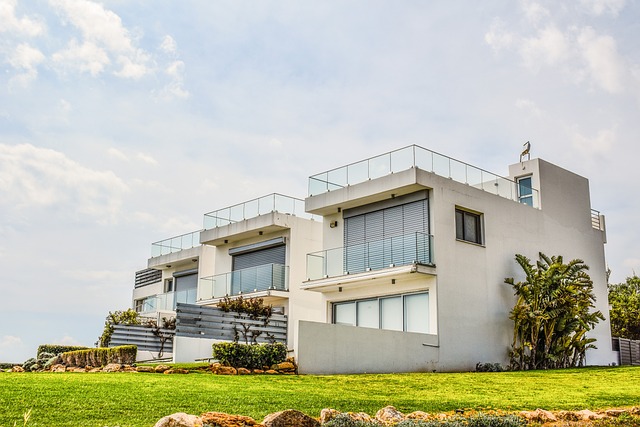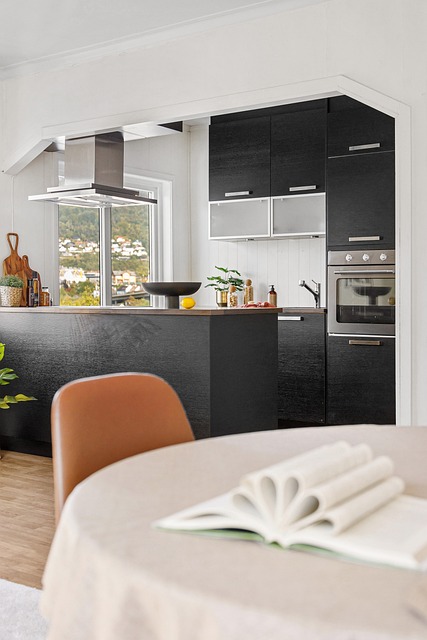Executive Condominiums (ECs) in Singapore are designed for upgrading families and individuals from HDB flats to condominium living at more affordable prices. To be eligible to buy an EC, you must be a Singapore citizen, adhere to the income ceilings set by the CPF Board, and not own any residential property or have additional properties from the Open Market. ECs near Mass Rapid Transit (MRT) stations offer enhanced connectivity and are in high demand due to their convenience and potential for increased property value. Post-purchase, EC owners must reside in the unit for a minimum of five years before it can be sold on the open market. After fulfilling this Minimum Occupation Period (MOP), there are no restrictions on resale. The eligibility criteria for ECs differ from those for private condominiums and are more accessible to middle-income earners. When considering an EC, it's important to evaluate whether it aligns with your current needs and future investment goals within Singapore's dynamic property market. Prospective buyers should stay updated on the latest guidelines from the CPF Board and Housing & Development Board (HDB) for the most accurate information on eligibility and policies.
Considering an Executive Condo (EC) near an MRT station? This comprehensive guide navigates you through the unique aspects of EC ownership, eligibility to buy, and resale policies tailored for prospective buyers. Delve into the specifics that make living in an EC near public transportation hubs a convenient and financially savvy choice. We’ll also compare ECs with private condominiums, helping you decide based on lifestyle, budget, and accessibility. Whether you’re a first-time homebuyer or looking to upgrade, this article offers valuable insights for your residential journey in Singapore’s vibrant property landscape.
- Understanding Executive Condos: A Guide for Prospective Buyers
- The Specifics of Executive Condo (EC) Ownership and Resale Policies
- Navigating the Eligibility Criteria for Buying an Executive Condo Near MRT
- Exploring the Benefits of Living in an EC Near Public Transportation Hubs
- A Comparative Analysis: EC vs. Private Condos: Making an Informed Decision Based on Lifestyle and Budget
Understanding Executive Condos: A Guide for Prospective Buyers

Executive Condos (ECs) in Singapore offer a unique housing option for both young families and individuals looking to upgrade from public to private housing. These hybrid properties combine the benefits of a condominium with the affordability of a Housing & Development Board (HDB) flat. Prospective buyers considering an EC must understand its distinct eligibility criteria, which differ from those for private condos or HDB flats. To be eligible to buy an Executive Condo, applicants must typically be Singapore citizens and satisfy the Monthly Household Income Ceiling set by the CPF Board. Additionally, they should not own any residential property or have an outstanding flat from the Open Market. These conditions ensure that ECs cater specifically to the needs of upgrading families without inflating prices beyond reach.
The process of purchasing an Executive Condo is tailored to support couples and families in their transition from public to private housing. Unlike private condos, which are open to all buyers regardless of citizenship, ECs are designed for a more targeted demographic. This targeted approach allows developers to offer more competitive pricing while maintaining high-quality living standards. The eligibility criteria also mean that resale values and rental yields for ECs can be more predictable, making them an attractive investment for those who meet the qualifications. Understanding these aspects is crucial for prospective buyers as it aligns their housing aspirations with the right property type, ensuring a smooth and rewarding home-buying experience in Singapore’s vibrant real estate market.
The Specifics of Executive Condo (EC) Ownership and Resale Policies

Singapore’s Executive Condominiums (ECs) offer a unique housing option for couples and families, blending the benefits of a private condo with the affordability of public housing. Prospective buyers interested in owning an EC must meet the eligibility criteria set forth by the CPF Board and Housing & Development Board (HDB). To be eligible to buy an EC, applicants must typically be Singapore citizens who are either married or have a fiancé/fiancée, and at least one of the applicants must not currently own or have an interest in another flat. Additionally, both individuals must earn a combined monthly income of not more than S$14,000 or less, excluding bonuses and allowances.
Upon fulfilling the initial eligibility criteria, couples can enjoy their EC for a minimum occupation period (MOP) of five years before they can sell it on the open market. During this MOP, the unit can only be sold to eligible Singapore citizens or permanent residents who meet the prescribed criteria. After satisfying the MOP, ECs can be resold to both Singaporeans and PRs without restriction. The resale price is subject to market forces and must be transacted at a fair market value. It’s important for potential buyers to understand these policies as they have significant implications for the liquidity of their investment. Prospective buyers should refer to the latest guidelines from the CPF Board and HDB, as regulations can change over time to reflect Singapore’s housing policies and market conditions.
Navigating the Eligibility Criteria for Buying an Executive Condo Near MRT

When considering the purchase of an Executive Condominium (EC) near a Mass Rapid Transit (MRT) station, potential buyers must first understand the eligibility criteria set forth by the Singapore government. The eligibility to buy an EC is distinct from that of a public or private condominium. To be eligible, applicants must be at least 21 years old and should not own any other flat, including HDB flats, DBSS (Design, Build and Sell Scheme) flats, or private properties. Additionally, the combined household income of applicants should not exceed S$14,000. This cap is intended to ensure that ECs remain accessible to younger couples who are typically at a lower income bracket compared to those purchasing private property.
Proximity to MRT stations offers unparalleled convenience in terms of connectivity and accessibility, making these properties highly sought after. The strategic location of an EC near an MRT station means residents enjoy shorter commute times to work and play, which is a significant factor for many homeowners. Furthermore, the development of surrounding infrastructure often appreciates the value of nearby ECs, making them not only a smart choice for living but also for investment purposes. Buyers interested in these properties should ensure they meet the eligibility criteria and consider how an EC near an MRT station aligns with their long-term housing and investment goals.
Exploring the Benefits of Living in an EC Near Public Transportation Hubs

Living in an Executive Condominium (EC) near a Mass Rapid Transit (MRT) station offers a multitude of advantages, particularly for those navigating the eligibility to buy an EC. These residences blend the tranquility of suburban living with the convenience of urban connectivity, making them an attractive option for young families and professionals alike. The proximity to MRT stations provides residents with easy access to various parts of the city, reducing travel time and commute-related stress. This convenience not only enhances daily mobility but also opens up a world of opportunities for work, leisure, and social activities without the need for private transportation.
Moreover, ECs near MRT stations are often situated in well-planned housing estates that come with comprehensive amenities and facilities, ensuring a holistic living environment. These developments are thoughtfully designed to cater to various lifestyle needs, from shopping centers and schools to parks and recreational spaces. The strategic location of these properties means that residents enjoy the benefits of urban living while maintaining a connection to nature and community. For individuals who meet the eligibility criteria for ECs, which differ from those for private condominiums, these homes represent a unique step up from public housing, offering a pathway to eventually own a fully private property after fulfilling certain conditions over time. This makes living in an EC near an MRT station a financially sound and forward-thinking decision.
A Comparative Analysis: EC vs. Private Condos: Making an Informed Decision Based on Lifestyle and Budget

When considering a new home in Singapore, discerning buyers often compare Executive Condos (ECs) with private condominiums, as both offer a luxurious living experience. The eligibility to buy an Executive Condominium is distinct from that of a private condo, catering to a broader range of applicants who meet the criteria set by the Singapore government. This includes individuals who are first-time flat owners or have already sold their previous flat and are eligible for a resale flat. ECs are hybrids designed to serve the middle-income group, providing a 99-year leasehold tenure with facilities comparable to those found in private condos but at more affordable prices.
Lifestyle aspirations play a pivotal role in this decision-making process. Executive Condos often come with larger units and are situated near amenities like shopping malls, schools, and MRT stations, which aligns with the needs of families. They also offer diverse living spaces that can adapt to different stages of one’s life journey, from young couples to growing families. In contrast, private condominiums may be located in more established or prime areas, offering exclusivity and potentially higher capital appreciation. The choice between an EC and a private condo thus hinges on balancing lifestyle preferences with budgetary considerations. Prospective homeowners should weigh the benefits of ECs’ affordability and the convenience of living near MRT stations against the potential long-term value and exclusivity offered by private condos. Understanding the eligibility criteria and assessing how each type aligns with one’s financial capacity and future aspirations is crucial in making an informed decision that will support a comfortable and fulfilling lifestyle.
When considering the purchase of a home in Singapore, particularly an Executive Condominium (EC) near an MRT station, it’s clear that such a property offers a unique blend of convenience, affordability, and community living. Prospective buyers must thoroughly understand the eligibility criteria for purchasing an EC to make informed decisions. This comprehensive guide has navigated through the specific ownership and resale policies, highlighting the benefits of ECs located near public transportation hubs. By comparing the features and conditions of ECs versus private condos, it becomes evident that an EC could be the ideal living solution for many, especially those looking to balance their lifestyle with financial considerations. In conclusion, for individuals and families seeking a home that aligns with both their aspirations and budgetary constraints, the prospect of owning an Executive Condominium near an MRT station is not only appealing but also a practical choice, given the right eligibility and circumstances.
